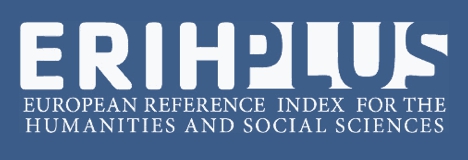The (in)visibility of the brazilian movies under the neoliberal globalization
Abstract
This study stems from discussions about the social and productive structure of Brazilian cinema, with specialists and filmmakers. Of the concerns raised about the reduced visibility of the national audiovisual by the population, there was the theoretical basis in the historical and geographic context of neoliberal capital. The multinationals control the Brazilian cinematographic distribution and advance considerably on the production and the exhibition, with omission of the national State, that still facilitated its penetration. Thus, the Brazilian imaginary was not reproduced on canvas and the efforts of countless national talents were vilified. The result: low visibility of the Brazilian film, increased ticket prices, low popular access, growing foreign domination in distribution and exhibition, distinctly from the 1970s, when the state encouraged national cinema through of Embrafilme.
References
BANCO CENTRAL DO BRASIL. Relatório de investimento direto no país. Brasília: 2018. Disponível em https://www.bcb.gov.br/acessoinformacao/legado?url=https:%2F%2Fwww.bcb.gov.br%2FRex%2FCensoCE%2Fport%2Fresultados_censos.asp%3Fidpai%3D em 07/02/2019.
BARRETO, Luiz Carlos. Cinema brasileiro – Verdades e mentiras (Parte I). Jornal do Brasil, Rio de Janeiro: p. 9, 21/07/1990.
BRECHT, Bertold. Privatizando. In A. Citelli. Bertold Brecht: comunicação, poesia e revolução. Comunicação & Educação. [online]. 12(2), 109-112. Recuperado em 24 de abril de 2011, de http://www.revistasusp.sibi.usp.br/scielo.php?pid=S0104-8292007000200013&script=sci_arttext#nt04.
CHESNAIS, François. A mundialização do capital. São Paulo: Editora Xamã, 1996.
FURTADO, Celso. Desenvolvimento e subdesenvolvimento. Rio de Janeiro: Contraponto, 2009.
GALBRAITH, John Kenneth. A Journey Trough Economic Time. Boston: Houghton Mifflin, 1994.
GUIMARÃES, Samuel Pinheiro. Desafios brasileiros na era dos gigantes. Rio de Janeiro: Contraponto, 2005.
HARVEY, David. A condição pós-moderna. São Paulo: Edições Loyola, 2006.
MPAA. A contribuição econômica da indústria de cinema e televisão para os Estados Unidos. Washington DC: 2016. Disponível em https://www.mpaa.org/research-docs/the-economic-contribution-of-the-motion-picture-television-industry-to-the-united-states/ em 07/02/2019.
ROCHA, Glauber. Revolução do cinema novo. Rio de Janeiro: Ed. Athambra & Embrafilme, 1981.
SANTOS, Milton. Por uma outra globalização. São Paulo: Record, 2009.
______. Território, territórios: ensaios sobre o ordenamento territorial. Rio de Janeiro: Lamparina, 2007.
SCIULO, Marilia Mara. 11 curiosidades sobre Hollywood que vão mudar como você assiste a filmes. Revista Galileu. Rio de Janeiro: Editora Globo. Disponível em https://revistagalileu.globo.com/Cultura/noticia/2017/12/11-curiosidades-sobre-hollywood-que-vao-mudar-como-voce-assiste-filmes.html em 07/02/2019.
SEVCENKO, Nicolau. A corrida para o século XXI. São Paulo: Editora Schwarcz, 2009.
SEVERO, Leandro. Desnacionalização atinge 2514 empresas brasileiras em 13 anos. Disponível em https://www.intersindicalcentral.com.br/desnacionalizacao-atinge-2514-empresas-brasileiras-em-13-anos/#.XF2pP1VKi1s em 15/01/2019.
SOUZA, Nilson Araújo de. O colapso do neoliberalismo. São Paulo: Global Editora, 1995.

This work is licensed under a Creative Commons Attribution-NonCommercial 4.0 International License.
Policy Proposal for Free Access Journals
Authors who publish in this journal agree to the following terms:
a. Authors retain the copyright and grant the journal the right of first publication, with the work simultaneously licensed under the Creative Commons Attribution License which allows the sharing of the work with acknowledgment of the authorship of the work and initial publication in this journal.
b. Authors are authorized to take additional contracts separately, for non-exclusive distribution of the version of the work published in this journal (eg publish in institutional repository or as a book chapter), with acknowledgment of authorship and initial publication in this journal.
c. Authors are allowed and encouraged to publish and distribute their work online (eg in institutional repositories or on their personal page) at any point before or during the editorial process, as this can generate productive changes, as well as increase the impact and The citation of published work (See The Effect of Free Access).





















